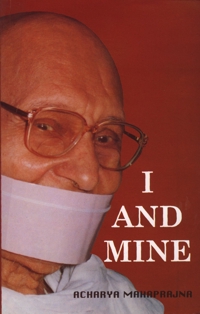
Once a man was going somewhere. It was midday of the month of Jeth (May-June). Dazzling sunshine and singeing winds. His body was veritably roasted. How beautiful this world would have been if there had been no sun, he thought.
Then came the rainy season. The sky was overcast. The whole earth looked one sheet of water. Days went by but the rain clouds showed no signs of vanishing. The sun became largely invisible. There was no full light, no sunshine and no singeing wind.
The same man went to a physician. Interrogated by the physician he said, 'Sir, I am suffering from indigestion, so I have come to get some medicine.'
The physician said, 'Sethji (wealthy merchant), the weather is cloudy and the rays of the sun are not reaching the earth, which causes dyspepsia. For this reason you should eat less.' The merchant returned home without any medicine. On the way he was musing on how dangerous the world would be without the sun.
The sun is the source of our vital force. Is austerity not a source of our vital force? One who eats less is more healthy, balanced and happy than one who eats too much. Frugal eating is austerity.
Acharang says, 'Lord Mahavira was not ill; even then he ate frugally.' I shall reword it thus, 'The Lord ate frugally, so he was healthy.' Fasting has earned the status of a therapy. But it is not merely a physical therapy. It also dispels mental filth accumulated over a long period. Fasting is an austerity. Mahatma Gandhi recognized disregard of the palate as a vow. No sense organ can subdue a person who has conquered the palate. Disregard of the palate is a great austerity.
Our body is extremely uncontrollable. Our sense organs are extremely uncontrollable. Our mind is very fickle. A monkey is very volatile. Even his sitting quietly and steadily is volatility. Our unsteadiness is not natural like the volatility of a monkey. It is purposive. We have to perfect our physical steadiness. It is an austerity. Austerity is not merely physical; it is also vocal and mental. Austerity is not dependent upon hunger. If our mind is pure, we can observe austerity even on a well-fed stomach. On the other hand, if the mind is impure austerity cannot be observed even by keeping hungry.
Those creatures are very lucky who are gifted with speech. We establish contact with the external world through speech. Self-expression would have been severely restricted in the absence of speech. It is speech, which enables us to study. Studying implies embracing by countless persons the truth or experience realized by one person. This is vocal austerity. A drain helps water reach a piece of cultivated land. It is merely a means. The basic thing is the existence of water. The well is full of water and the drain carries it to the cultivated land. Speech too is a means. Its source is the mind and the intellect. Meditation is a mental austerity. Self -contemplation is an intellectual austerity. Our vital force gets its nourishment from the sun. Austerity gives nourishment to our spiritual force. The Gita says, 'There is the body. The senses are prior to the body. The mind is prior to the intellect.'
If only the body is subjected to austerity, egotism grows. When both the body and the senses are subjected to austerity, restraint grows. When the body, the senses and the mind are subjected to austerity, the door to spirituality opens. When the body, the senses, the mind and the intellect are subjected to austerity, self-realization takes place. It is a condition in which austerity finds itself richly rewarded.
 Acharya Mahaprajna
Acharya Mahaprajna

